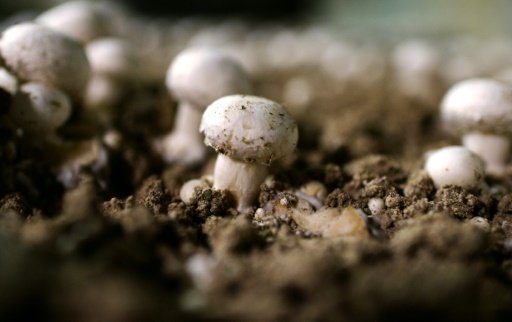
Psilocybin — a mind-altering chemical in several species of mushroom — has been investigated as a potential treatment for major depression, according to a small-scale study by Marlowe HOOD | AFP
PARIS: Hallucination-inducing “magic” mushrooms could help some people blunt the anxiety caused by chronic depression, according to a small-scale study released Tuesday.
“This is the first time that psilocybin” — a mind-altering chemical in several species of mushroom — “has been investigated as a potential treatment for major depression,” lead author Robin Carhart-Harris of Imperial College London said in a statement.
The study only involved 12 people and did not use a placebo-taking control group.
But the results, published in The Lancet Psychiatry peer-reviewed medical journal, were encouraging enough to merit further trials, he said.
All of the subjects had tried at least two standard drug treatments without success, and most had also undergone psychotherapy.
Clinical depression is a debilitating disease that affects tens of millions of people worldwide.
Antidepressants and talk therapy don’t work for about one in five patients, highlighting the need for alternate treatments.
Psilocybin stimulates receptors for serotonin, a naturally occurring chemical in the brain that affects mood.
Many antidepressants — known as SSRIs — are designed to boost serotonin levels.
In the experiment, Carhart-Harris and colleagues gave two doses of psilocybin, a week apart, to six men and six women suffering moderate to severe depression.
The first dose was small, to test for adverse side-effects.
The next dose, 25 mg, was strong enough to cause hallucinations.
Patients lay in beds in a quiet room, listening to classical music. They were encouraged to “explore their own mental space,” or imagine a pleasant landscape.
They all reported mild nervousness as the drug took hold within 30 to 60 minutes, but there were no serious side-effects.
Each session lasted six hours — with “peaking” occurring half way through — and was monitored by two psychiatrists.
Doctors followed up at regular intervals following the experiment.
All patients showed some improvement one week later, and eight out of 12 showed “temporary remission.”
After three months, seven of the patients continued to show improvement, and five were still in remission.
These results “are promising but not completely compelling,” commented Philip Cowen, a clinical scientist and professor at the University of Oxford.
“Further follow-ups using detailed qualitative interviews with patients and family could be very helpful in enriching the assessment,” he wrote, also in The Lancet Psychiatry.
Another expert not involved in the study expressed greater scepticism.
Given the small number of subjects and lack of a control group, “it is impossible to attribute clinical efficacy to the drug,” said Jonathan Flint, a professor of neuroscience at the University of Oxford.
Along with LSD and other hallucinogens popular as recreational drugs in the 1960 and 1970s, psilocybin is classified as a “controlled substance” and is illegal in most countries. -AFP
